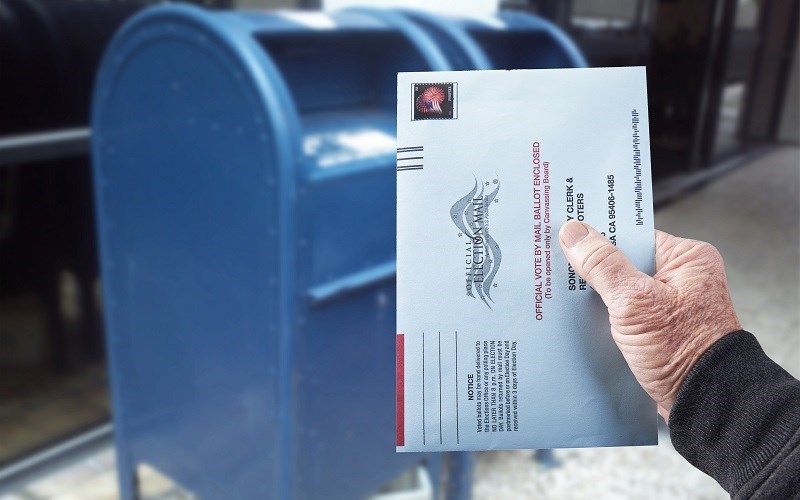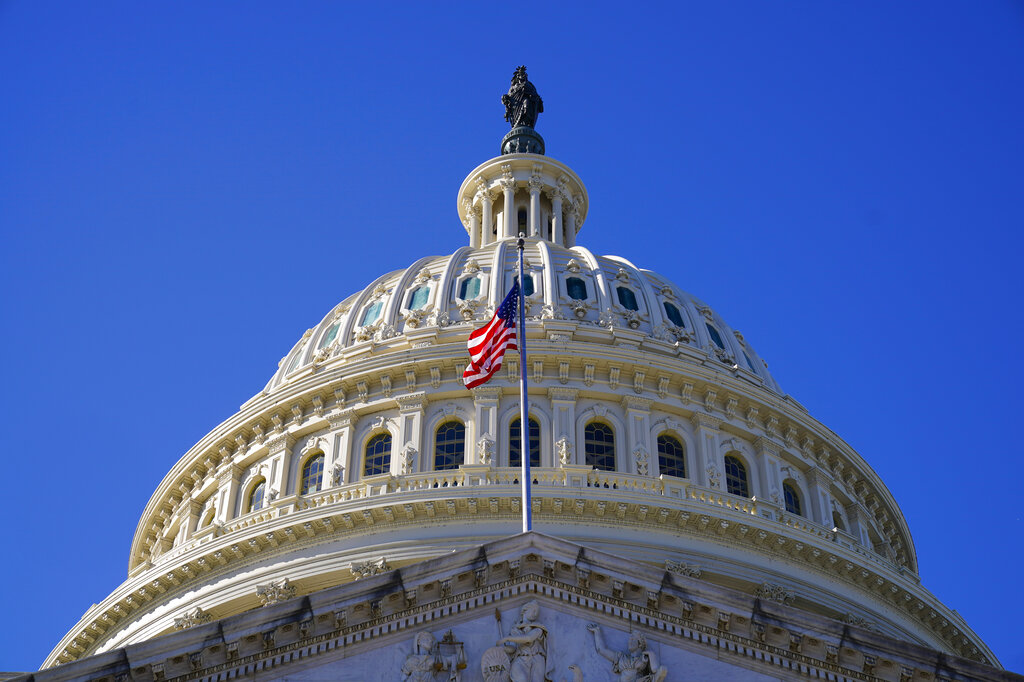A presidential election year is only days away, and it will arrive amid new evidence of voter fraud in 2020 when now-President Joe Biden turned incumbent Donald Trump out of office. As the calendar turns, those two appear headed for a rematch.
Democrats often downplay the significance of election integrity, but Rasmussen Reports and The Heartland Institute said last week that 20% of mail-in voters in 2020 admitted to some type of fraud.
COVID-19 fears in November 2020 led to a number of changes to voting laws that encouraged mail-in ballots. Almost 70% of voters in 2020 cast their ballots in a non-traditional manner. That's more than 66,000,000 for a little more than 150,000,000 votes cast. In Hawaii, 97.6% of voters cast ballots early or by mail.
"We're talking about very large numbers – and while people always talk about the presidential race, remember when we go in on Election Day we're voting on very long ballots," Hans von Spakovsky, the senior legal fellow at The Heritage Foundation, said on Washington Watch Friday.
"In a presidential election year, you're also going to be voting for members of Congress, state legislatures, local city councils, county commission races," he continued. "Most of those races are won by a very small margins. It doesn't take a lot of fraud to change an outcome in a race like that."
Many 2020 voters admitted to completing ballots, in part or in full, for a friend or family member. Thirty percent said they voted early or by mail; and of those, 19% say someone else filled out their ballot.
Seventeen percent of mail-in voters said they cast a ballot in a state where they were no longer a permanent resident – which von Spakovsky said is easy to do in today's highly mobile society.

"People move a lot in this country … and it's fairly easy for someone to get registered to vote when they move to another state but leave their registration in their old state and vote, for example, in-person in one state by absentee ballot in the other," von Spakovsky said.
Among the mail-in voters who admitted some type of fraud, percentages of Democrats, Republicans and unaffiliated voters were almost equal, the report said.
Vote-buying is a problem
Von Spakovsky explained "vote buying" was also a problem in 2020. Allegations that money was paid for votes have arisen in the Springfield, Mass., mayor's race this year.
"We don't know how big that problem is, but we know it's a problem," he stated. "An election official heard someone who came into a polling place say, 'Oh, I need that "I voted" sticker in order to get paid.' They actually have video from a camera outside the polling place showing a man who had driven up in a black SUV actually paying off voters as they came out," von Spakovsky said.
The Heritage Foundation maintains a database of confirmed cases of election fraud in the U.S. which presently number almost 1,500.
"You'll find many cases where people were bribed to vote a certain way," von Spakovsky said.
Von Spakovsky also pointed out that Democrats have changed their tone on election irregularities in 2020 from "no evidence of fraud" to "no evidence of widespread fraud."
"My question to that is, 'How widespread does it need to be before you want to start taking steps to stop it?' They push it because while there are cases of both Democrats and Republicans in our database engaging in fraud, the majority of the cases are Democrats. In fact, sometimes it's Democrats stealing votes from other people in their own party."
Election integrity matters in red states, scorecard shows
The Heritage Foundation has published an "election integrity scorecard" that rates the election laws and regulations of all states and the District of Columbia.
"We came up with an objective scorecard that rates states on 47 different criteria. It's everything from whether they require an ID to vote, both in person and with absentee ballots; to what steps do they take to maintain and clean up their voter rolls so that they are accurate and don't have people who are dead on them or people who have moved away," von Spakovsky explained.
"Then we compared every state to these 47 best practices. The best states in the country … are mostly [Republican-led] red states because they're actually willing to pass reforms,"
According to the Heritage fellow, no state scored a perfect 100.
"The highest scores were in the low eighties. Those are places like Georgia, Florida, Texas, Mississippi and other states that have actually done a pretty good job with reforms," he offered.
"The worst states in the country, probably … no surprise to anyone, are places like California and New York, which not only don't clean up their voter rolls, but they don't even require an ID to vote. So, if you want to commit fraud in a state like that, it's very easy to do, and your chances of getting caught are minimal," von Spakovsky said.







